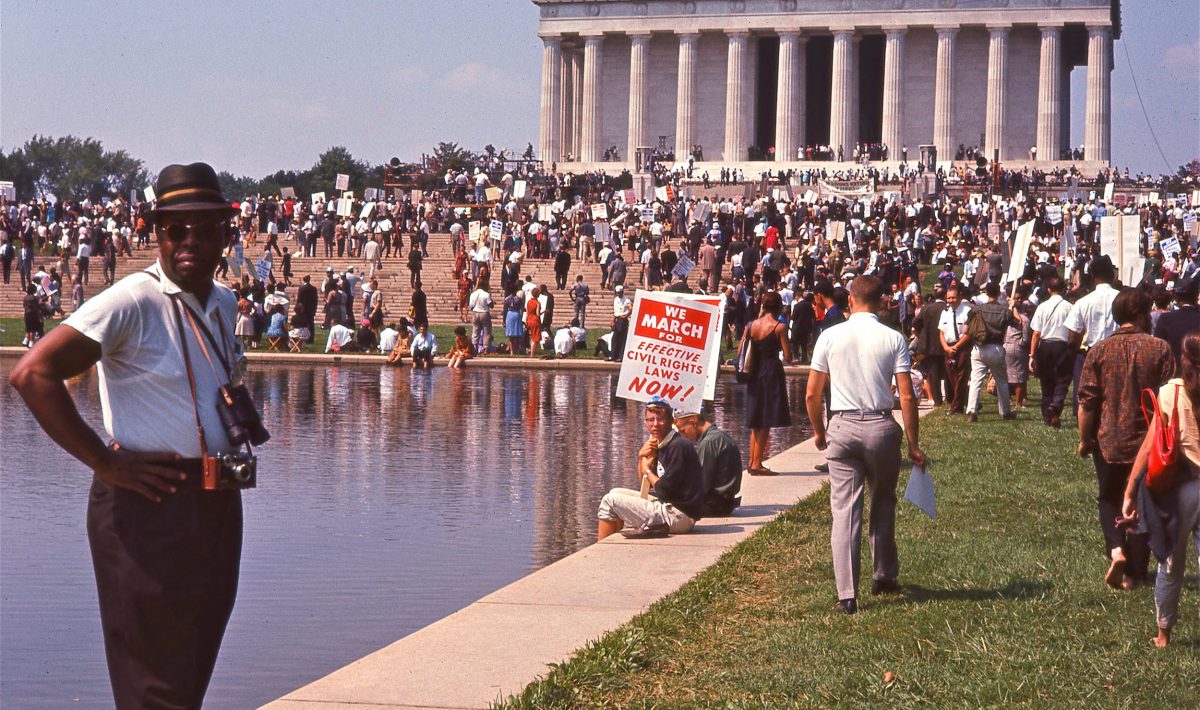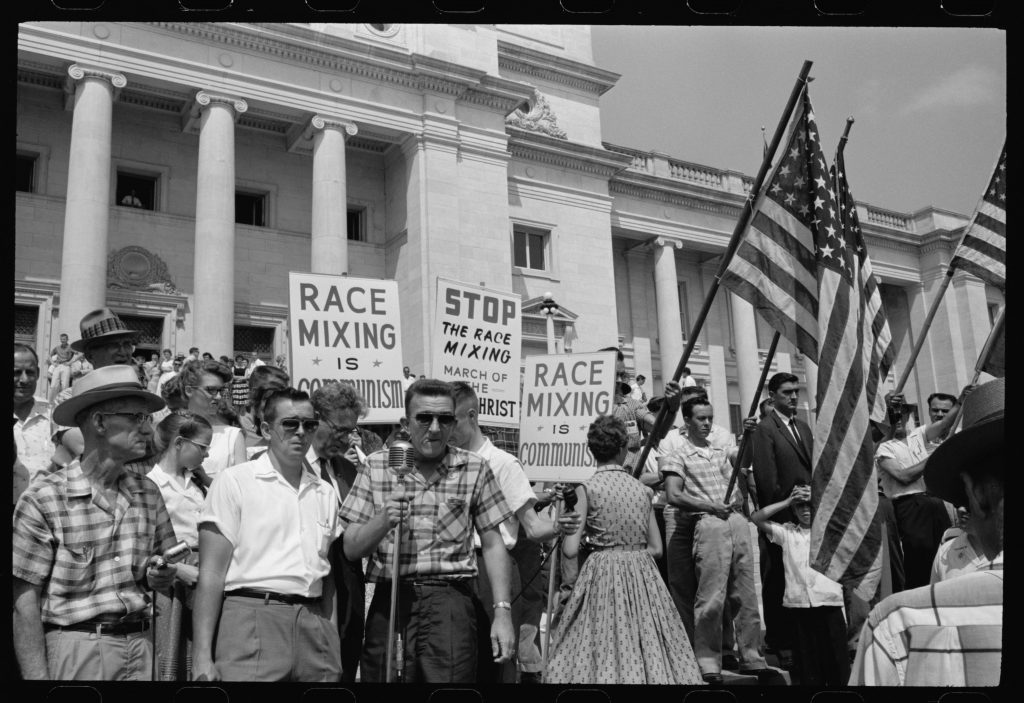Raoul Peck created a thoroughly personal identity manifesto. The narrative consists of archival materials depicting the struggle of the African-American movement, visual film quotes, fragments of contemporary protests and manifestations, and all this is bound by a text read by Samuel L. Jackson, which is an adaptation of the James Baldwin’s never completed book.
This book was to have a revolutionary dimension, telling the stories of three writer’s friends, leaders of the African-American movement: Medgar Evers, Malcolm X and Martin Luther King, and commenting on their killings. The book was never written, Baldwin stopped on 30 pages.
Peck uses intimacy as a tool. The personal stories of fighters – each of whom had a slightly different idea of social activity, the fight for equality, civil rights and the abolition of racial discrimination – merge into one voice of protest against dehumanization and standardization of all Black communities. Against treating African Americans as one, compact, thoughtless, black mass.
In I Am Not Your Negro, tensions are felt very clearly: equality and inequality, community and individualism. Peck tells the stories of his heroes, while wondering about the effectiveness of their thoughts. His voice takes on a bitter, critical tune. Here, coming from different environments, places, professing various religions, having different leadership characters (representatives of larger groups, also composed of different people), they are equated in a murderous act of hatred. They are equated by the same kind of death, by murder, which takes their individual voice, condemning the entire community to a silent scream – after all, without the charismatic voice of the leaders, there is no possibility of appearing in the American media world of warm, air-conditioned studios and one-on-one talks with a presenter with showman-jam or a guest who is always utterly antagonizing.
The director emphasizes his thesis, consciously choosing archival materials – e.g. citing old films in which African Americans have always played roles colored with racial background: servants, caretakers, farmers, simple, uneducated people. Peck tries to answer the question, why such a huge emphasis on this type of stereotypical visuality is still so stubbornly present.
Firstly, Peck deconstructs the typical White American character. Puritan recipe for American identity is simplicity and honesty. But focusing on these qualities contributes to immaturity, stopping development. Imagine a child who has not been in contact with the outside world for years, and is fed by a simple vision that it cannot confront with a reality it has no contact with. The confrontation with the outside world causes trauma, repression or an aggressive reaction. Cultural focus on these positive – at first glance – features functions similarly, Peck seems to say. Living in a simple pattern is comfortable and pleasant, full of innocent faith in the truth of Puritan virtues, but the confrontation with gloomy reality causes a powerful, identity grind.
Secondly, White Americans are desperately trying to prove their innocence, their “purity,” which somewhat results from the model of life I wrote about above, but the source of this artificial problem lies deeper. This is because of fear of confronting your own guilt and fear of being hated. It is an eternal denial of the heritage of the past in the form of brutal and cruel acts (e.g. slavery). Living in constant fear of rediscovering this guilt and the need to constantly prove one’s “purity” has became the driving force for contemporary monstrosities and brutalities. It is getting into a patriotic neurosis of hiding your mistakes at all costs – but this hiding obscures the perception of reality so much that it reproduces the mistakes of the past.
Thirdly, the Whites perversion of American dream and realizing the dream of freedom. Opening this world to people with a different skin color is an illusion, unless it becomes equally accessible to everyone. Words alone and best intentions will not make everyone have an equal right to this world. They all become prisoners of a cage suspended between dreams of power and who they are in reality. Imposing the same imagination[1] on everyone only aggravates the conflict, because the starting conditions are not equal, and the path for many is irreversibly blocked.
With his film, Raul Peck tries to give African Americans an identity – full of awareness of their own history and goals. I Am Not Your Negro is an attempt to emphasize the sense of separateness and the right to individualism. I get the impression that Peck is very close to the thoughts of black philosopher from Martinique, Frantz Fanon[2] – who, just like Peck, draws heavily on his own personal experiences. This philosopher claimed that racism, White’s gaze, awareness of his own position, the complex resulting from the difficulty of living in the white world (e.g. a colorful man encounters difficulties in developing his bodily pattern – his body is these other, strange body, which Whites point their fingers at. Body awareness can be built only through negation. This is awareness in the third person. So the body is something terribly uncertain), his own history (segregation, violence) – all this can be liberating. In the absence of the possibility of getting rid of the innate complex, racism should begin to be understood as a reminder of one’s own identity, strengthening it and drawing strength no longer from one’s own fears, but from White’s fear of otherness.
I Am Not Your Negro, is
a brilliant movie, especially if you are part of the white world. It reminds us
that we, the White, are guilty and nothing can erase this fault. The Christian
assumption of forgiveness should not apply here – we should not forgive
ourselves.
[1] What kind of imagination it is, one can find in Herbert Marcuse’s One-Dimentional Man.
[2] I refer to the book The Wretched of the Earth.







